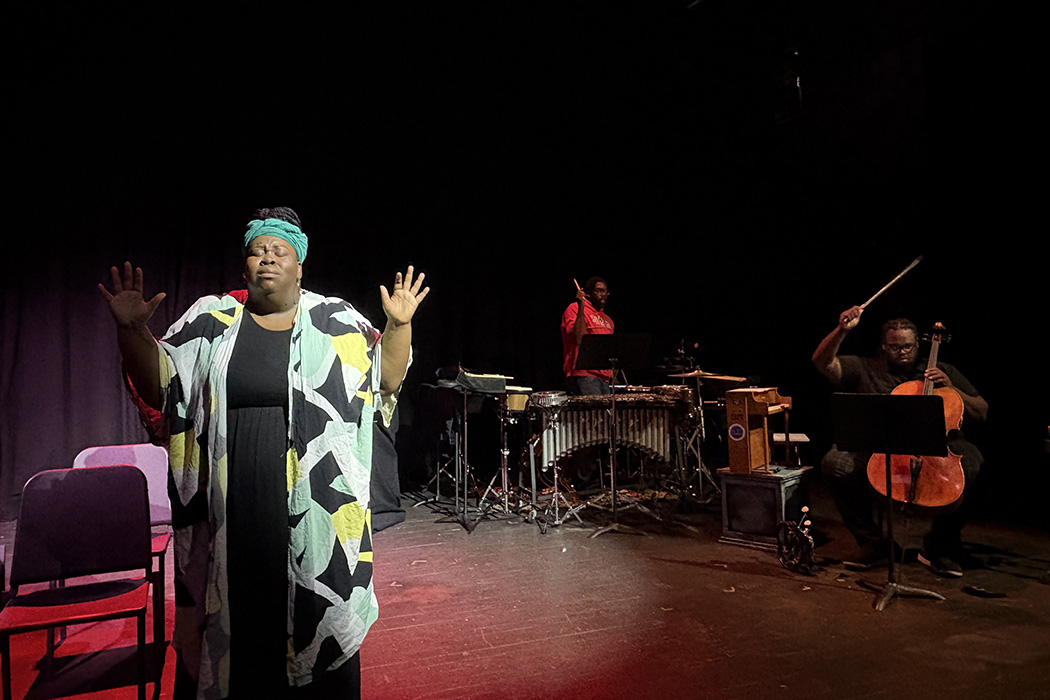Although little more than a kinetic construction of metal, rubber, plastic, and glass, the automobile has an iconic place in American culture that far outweighs the sum of its raw materials. As far back as its first appearance on the roads in the early 20th Century, the automobile has represented class and economic status, the willingness to embrace technological change, and, perhaps most importantly, freedom of mobility. Sadly, though, the reality of freedom has not been equally distributed in American culture; freedom to one person can easily mean a barrier to others. Decades of societal change have often merely shifted the automobile’s promise of freedom from one metaphoric barrier to another.
Marble City Opera’s latest production is dwb (driving while black), a one-act opera that dives headlong into the inherently intensifying anxiety faced by Black families as children approach automobile driving age and face the intersection of modern mobility and the horrors of profiling and racist policing. With music by Susan Kander and a libretto by Roberta Gumbel, the 45 minute work features three performer/musicians: Mother (soprano Allison Sanders), Cellist (Cremaine Booker), and Percussion (David Verin). dwb is directed by Ivan Griffin, who previously directed MCO’s The Christmas Spider.
While the stage setting is necessarily minimal—some metal chairs and other simple furniture—there is peripheral focus on some sneakers as an obvious symbol of a life, or lifeline, moving from birth to approaching manhood. Otherwise, we find ourselves riveted to the movement, dramatic delivery, and incredibly powerful voice of Ms. Sanders. Her ability to traverse the space between fear and humor seems almost magical. Booker and Verin are both actor and musician in their roles, performing Kander’s unique and challenging atonal score of cello and percussion that included mallet-ed instruments, toy piano, and other textural devices such as the sound of a balloon expelling air. It was not surprising to find that all three have performed dwb in productions elsewhere, bringing prior experience to performing the score’s complex layering that requires dramatic give and take as well as accomplished vocal and instrumental performance.
Intriguingly, Gumbel’s libretto moves Sanders from Mother into other character identities, leaving the recognition of dramatic discovery to the audience. One longer departure of deep emotional impact was that of a young man mistaken by police for someone else in the tragically classic scenario, but later dumped from the paddy wagon and forced to find his way home.
Despite of—or perhaps, due to—dwb’s visual minimalism, the full impact of the libretto seeps into the viewer little by little as the haunting feelings of inevitableness overtake the reality of parenthood. This is an operatic tragedy beautifully stated, but ironically one that we have the power to alter, if we only will.
There is one remaining performance of MCO’s dwb (Driving While Black) at Old City Performing Arts Center, 111 State Street, on Saturday evening, October 12, at 7:00 PM. Tickets and Information.







